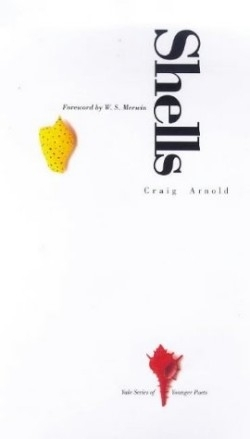Shells
Yale Series of Younger Poets
If, as some have said, the purpose of poetry is to provide pleasure, then Shells, the most recent winner of the Yale Series of Younger Poets competition, provides that pleasure in a manner both delightful and disturbing.
This is poetry that cuts through the veil of gentility, or ignorance, that often makes life bearable. The shelled creatures, both marine and human, given life in these poems are examined and experienced with a full array of the senses. The fragility of the self, of relationships, of life itself, is shown for what it is by a careful stripping away of the masks (shells) we use to give ourselves the illusion of invulnerability.
Arnold has previously published in The Best American Poetry 1998, The Paris Review, and The Yale Review. He is currently working on his Ph.D. in creative writing at the University of Utah and was the 1996 winner of the Amy Lowell Poetry Traveling Scholarship.
In Shells, Arnold lays bare the viscera of relationships, leaving them exposed, gleaming in the sunlight. He does so with intelligence and not without humor. At times the poetry shocks, pulling back the curtain of falsely placed trust to reveal our worst fears: How do we know that the cook, angered by a customer’s having sent back a plate of food, will not use his bodily secretions to flavor it before sending it out again? “For A Cook.”
Arnold’s subjects are wide-ranging, including (besides those made obvious by the title) food and cooking, friendship, high school reunions, sex, spices and “locker room etiquette.” The writing is sensual, strong, moving and accessible. The feelings these poems arouse are not easily forgotten.
Reviewed by
Kristine Morris
Disclosure: This article is not an endorsement, but a review. The publisher of this book provided free copies of the book to have their book reviewed by a professional reviewer. No fee was paid by the publisher for this review. Foreword Reviews only recommends books that we love. Foreword Magazine, Inc. is disclosing this in accordance with the Federal Trade Commission’s 16 CFR, Part 255.

